In this article:
Warts, caused by the human papillomavirus (HPV), refer to lesions or bumps that develop on the skin. They generally resolve on their own, but they can cause complications such as cancer, although rarely.
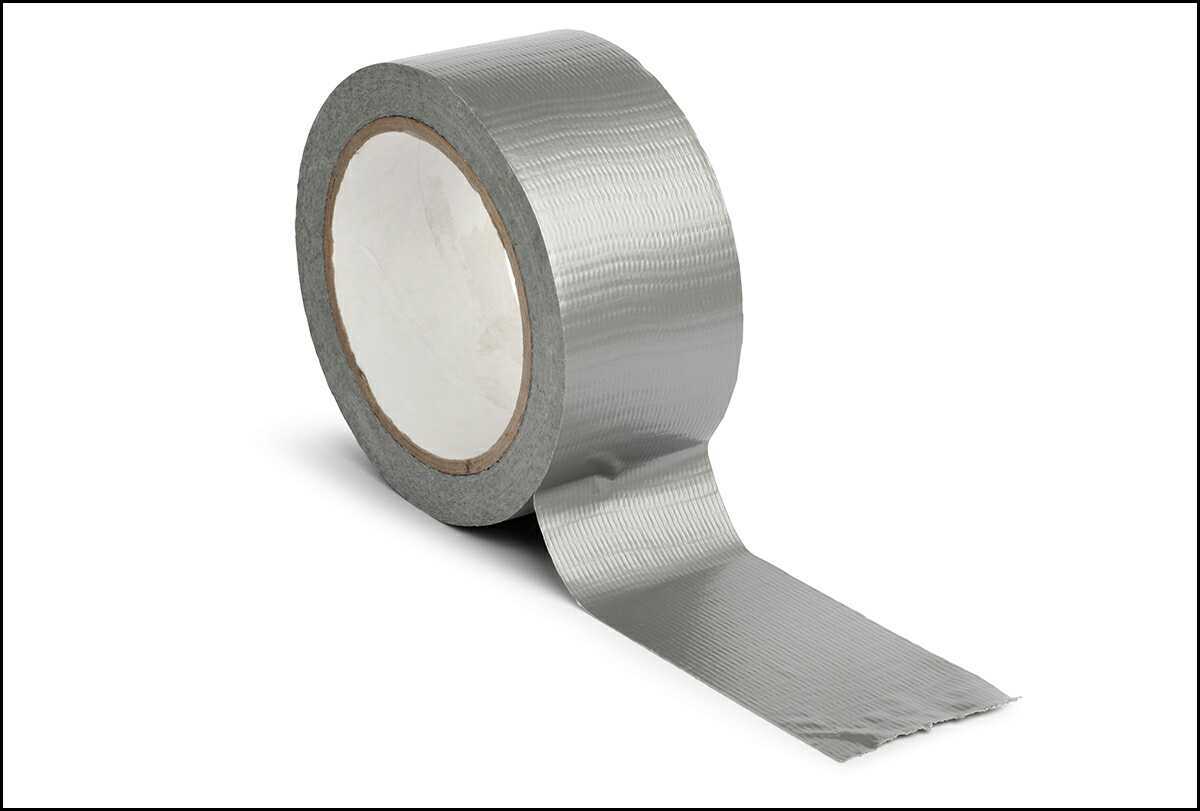
This article discusses various home remedies and self-care measures that can aid in the management of warts, as well as preventive measures to avoid the infection in the first place.
Home Remedies to Treat Warts
The following home remedies may be helpful in the treatment and management of warts:
Caution: Avoid using these home remedies if you have genital or anal warts. Moreover, it is essential to conduct a patch test to check for reactions or allergies to the ingredients. People with diabetes should consult their doctor before trying these remedies, especially OTC products, as they can increase the chances of loss of sensation in the foot.
1. Use duct tape
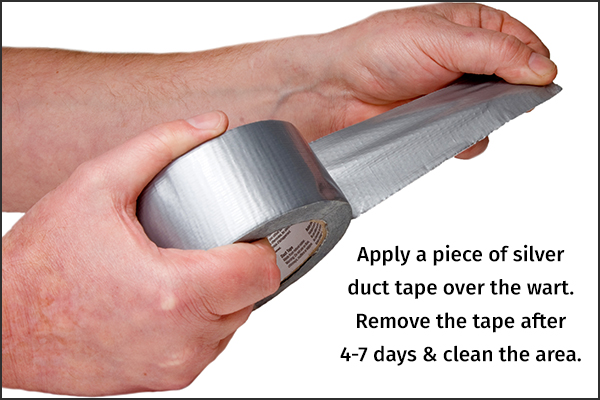
While there is limited scientific evidence on the effective use of duct tapes for wart removal, it is a safe and well-tolerated remedy that can be tried.
How to use:
- Apply a piece of silver duct tape over the wart.
- Remove the tape after 4–7 days and clean the area. Use an emery board to help remove the dead skin cells.
- Apply a fresh piece of tape after 12 hours.
- Repeat the process for 4–6 weeks. (1)
2. Apply lemon juice
A 50% citric acid solution can help in treating warts. (2) Since lemons are rich in citric acid, they may act as a natural remedy for warts.
How to use:
- Squeeze some fresh lemon juice and dilute it with water. Alternatively, you can use other citrus fruits. Soak a cotton ball with the lemon juice and dab it over the wart. Apply a bandage over it.
- Apply an ointment containing citric acid.
3. Dab some oils
Oils such as thuja oil, (3) neem oil, (4) tea tree oil, and vitamin E oil (such as castor oil) can help in the treatment of warts, owing to their antiviral and antimicrobial properties. (5)(6)
How to use:
- Dilute neem, thuja, or tea tree oil in any carrier oil, preferably a vitamin E oil before use. Apply any of these oils over the warts.
- Puncture a vitamin E oil capsule and use it directly.
4. Try garlic
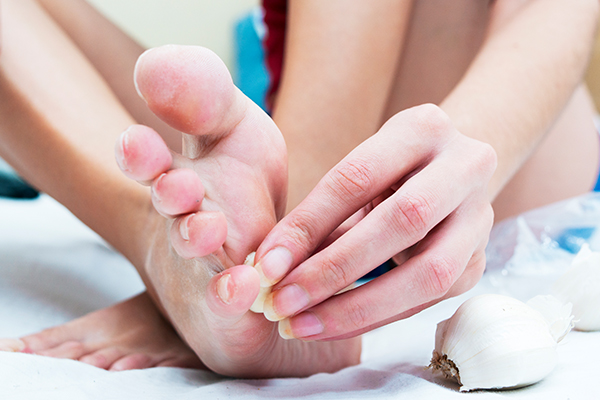
Garlic has antiviral properties that can help curb the multiplication of cells infected by HPV. (7) Moreover, garlic helps in blister formation in the warts, assisting their detachment from the skin.
How to use:
- Place a crushed garlic clove on the affected area and cover with a bandage. Wash the area after 20 minutes. Repeat this treatment twice a day for 1 week.
- Include garlic in your diet. (8)
5. Apply apple cider vinegar
The topical use of apple cider vinegar (ACV) is reported to be effective by various users. However, this use has no scientific evidence and is therefore considered an anecdotal remedy.
It is thought that the acidic nature of ACV can mimic the peeling effect of salicylic acid chemical peels used for wart treatment.
How to use:
Dilute one part ACV in three parts water. Apply this solution over the wart using a cotton ball. Cover the area with a bandage.
6. Place a banana peel over the warts
Banana peels are another popular anecdotal remedy that lacks scientific evidence, but they are thought to help due to their antioxidant-rich and mineral-rich composition.
It is suggested that green banana peels are more effective than ripe banana peels.
How to use:
- Place a banana peel on the wart with the inside part of the peel touching the affected area. Secure it with tape and leave it overnight.
- Rub the affected area with a fresh banana slice.
7. Use OTC products
You can try various over-the-counter gels, ointments, freezing sprays, (9) and adhesive pads for the treatment of warts. These gels and adhesive pads usually contain silver nitrate, zinc oxide, vitamin A, (10) green tea extracts, (11)(12) or zinc pyrithione.
However, it is best to consult a doctor before using these products as these can delay the diagnosis of cancer.
Self-Care Measures for Warts

The following self-care measures can aid in a quicker recovery and can also help prevent the spread of infection:
- Avoid scratching or touching your warts. Wash your hands thoroughly every time you happen to touch your warts, especially after you clean them.
- Refrain from sharing personal items such as washcloths, razors, towels, socks, and nail clippers to prevent infection. Make sure to have and to use your own. This helps prevent the spread of the virus that causes warts from one person to another.
- Avoid shaving over or near your wart.
- Use a waterproof plaster over the wart when swimming.
- Disinfect nail files, pumice stones, and similar items before use if they have been used on a wart.
- Abstain from sexual intercourse to avoid the spreading of the virus. While you can use condoms to reduce the risk of infection, it does not eliminate the possibility.
- Consume antiviral and immunity-boosting foods. Include more protein, vitamins A and C, copper, selenium, iron, and zinc sources in your diet. Vitamin A can be found in carrots, broccoli, sweet potatoes, and spinach. Citrus fruits, strawberries, tomato juice, and fortified cereals are good sources of vitamin C. Whole grains, seeds and nuts, beans, and seafood are good mineral sources. You can also take supplements upon consulting your doctor.
Preventive Measures
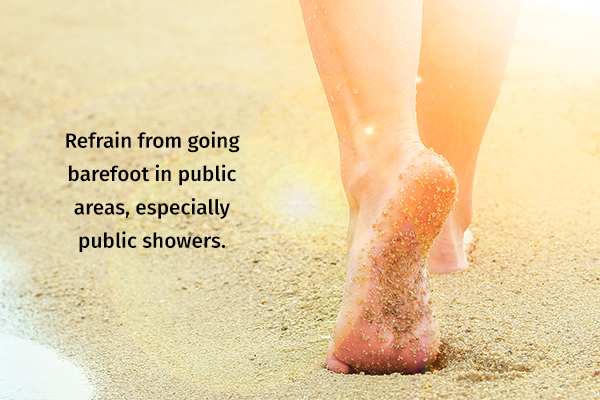
The following measures help prevent the development of warts:
- Refrain from going barefoot in public areas, especially in public showers.
- Do not touch anyone’s warts.
- Make sure to keep any cuts and scrapes clean and covered at all times as HPV is a prevalent microbe.
- Use antiseptic solutions to clean your hands, especially after you come from outside.
- Keep your skin moisturized to avoid the development of cracks that allow HPV to enter the skin.
- Get vaccinated against HPV.
- Avoid biting your cuticles or nails as it can cause tears, which act as entry points of HPV.
- Avoid excessive sweating as damp and soft skin is highly prone to HPV infections. If you have hyperhidrosis, get it treated.
- Keep your feet dry and moisturized. Moreover, use clean socks every day.
- Limit your alcohol consumption and quit smoking. (13)(14)
Most-Asked Questions About Warts
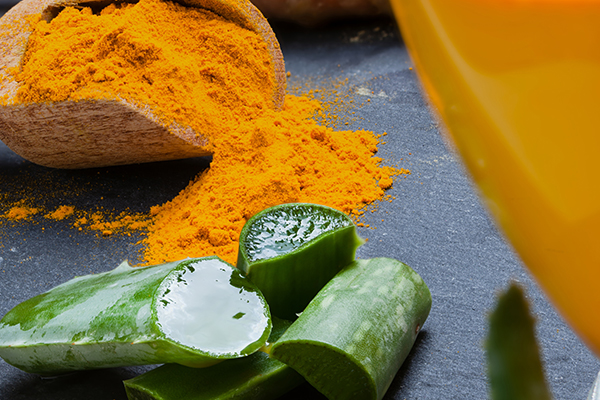
Can turmeric help in the treatment of warts?
Curcumin, the active ingredient of turmeric, (15) may help in the treatment of warts. However, the studies conducted were not conclusive. You may try using curcumin-containing creams, but further studies are required to establish the efficacy of direct application of turmeric.
Is aloe vera gel effective for wart treatment?
A few users report the use of aloe vera in treating warts. However, there is only limited scientific evidence on the effect of aloe vera, and further studies are needed to establish its effects on different kinds of warts. (16)
Can the topical use of aspirin aid in the management of warts?
The use of aspirin for the treatment of warts is based merely on anecdotal evidence. It is thought that the salicylic acid content of aspirin can help in wart treatment, similar to OTC ointments or chemical peels. However, different warts require different strengths of salicylic acid; thus, the use of aspirin is not a reliable treatment.
Final Word
Warts are a common problem. However, they are rarely a severe medical problem and often resolve without any treatment.
You can try different home remedies and self-care measures to aid in the healing of warts. A few preventive tips can help avoid the development of warts in the first place.
It is essential to consult a doctor if the problem persists or is recurrent, as warts may lead to complications such as cancer in some cases.

- Was this article helpful?
- YES, THANKS!NOT REALLY


